Eat It, Portland! New York City's Going Far Left -- Starting With Immigrant Voting Rights
by Tom Lisi
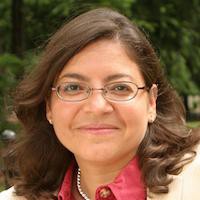
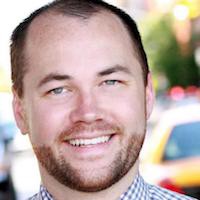
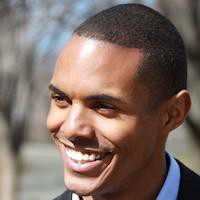
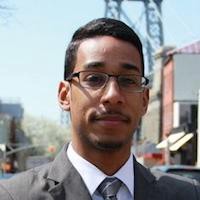
New Yorkers, you might have surprised yourselves. This fall you’ve voted in one of the most liberal governments to City Hall of… maybe ever. Along with Bill de Blasio, primary voters also put forward a city council far more liberal than it already is. Every sitting member of City Hall’s Progressive Caucus (formed just three years ago) got re-elected, including Letitia James, who won the nomination for Public Advocate. Six out of the seven new candidates endorsed by the caucus won their primaries: Costa Constantinides in Astoria, Ben Kallos in the Upper East Side, Mark Levine in Upper Manhattan, Daneek Miller in Southeast Queens, former ACORN organizer Antonio Reynoso in Williamsburg and Ritchie Torres in Central Bronx. Those last two are bonafide millennials, too.
On top of that, you have high-profile activist liberals like Helen Rosenthal in the Upper West Side and Laurie Cumbo in Fort Greene–and 33-year-old Carlos Menchaca who unseated a Democratic incumbent to become the first Mexican-American city council member. All told, there will be at least 20 new council members in the 51 seats in 2014. (Thanks, term limits.)
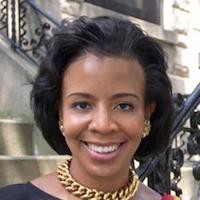
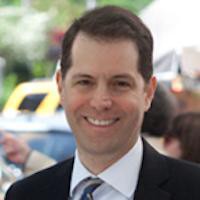

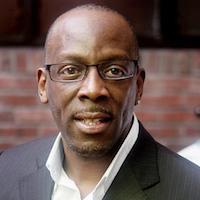
All signs point to the Progressive Caucus and the Black, Asian and Latino Caucus wielding more power than ever, and finally piercing through the mayor’s office, after Bloomberg and Giuliani before him mostly ran their own shows for 20 years. What’s more, with the additions of Torres, Menchaca, Rosie Mendez in the Lower East Side, and Corey Johnson in Chelsea, there will be six openly gay council members (Jimmy Van Bramer in Sunnyside and Daniel Dromm in Jackson Heights will be re-elected). It’s a diverse, liberal wonderland of Sesame Street-esque proportions.
The snazzy 13 Bold Ideas website, brought to you by the Progressive Caucus, might even excite some of that coveted creative class. But, peeling away the Big Bird utopia, the biggest change we might see coming from this new line-up is New York City giving immigrants the right to vote.
That’s the aim of one of those 13 ideas, which comes in the form of a city council bill currently stuck in committee. (Former Speaker Christine Quinn has never agreed to put it up for a vote.) The bill defines a “municipal voter” as any legal permanent resident of New York City. That includes people with student visas and people with refugee or asylum status or green cards. As long as you’re documented and have lived in the city for at least six months, you’re in.
The bill only covers citywide elections: mayor, public advocate, comptroller, borough presidents, and the city council. (State and federal elections would still include citizens only, obviously.)
At first it sounds like a pretty left-field idea. Other than a few towns in suburban Maryland, no other municipalities in the US let noncitizens vote. Then again, a lot of U.S.-born New Yorkers probably don’t even think about the fact that non-naturalized immigrants can’t vote at all. (Fun fact: they used to vote for NYC school boards, before the Department of Education fell under mayoral control in 2002. So you can put “denying the vote to immigrants” on the list of things Bloomberg did.) But, backers of the bill will be quick to tell you that before World War I, it was very common across the country.
Back in the day, 40 states and territories allowed immigrants to vote in local, state and federal elections, until the huge wave of immigration in the late 19th century led to fear among Democratic and Republican leaders over “the weight of the foreign electorate, that they could determine winners and losers, that they could run for office,” said Ron Hayduk, political science professor at Queens College and a principal lobbyist for the immigrant voting bill. “Anxiety about population projections–that the country would become mostly nonwhite” — by that, meaning Italians, Jews, and Eastern Europeans — “propelled some of these policies.” Well, that doesn’t sound familiar.
Data from the U.S. Census show that of the 1.3 million immigrants in the five boroughs, about 800,000 are lawful residents of voting age. Even adding a fraction of that pool of people to the electorate could make for a huge change in how elections and policy are determined. The non-citizen rates of participation in Takoma Park, Maryland, falls roughly in line with the electorate as a whole, which could mean an extra 100,000 to 200,000 voters for citywide elections across the five boroughs.
The public debate around this issue has also flown well under the radar. In a forum outside the televised debates, de Blasio, like most of the other Democratic candidates, said he needed to study it more, but was open to it. Let the man evolve! John Liu, who got much support from heavily Chinese-immigrant districts, was all for it.
Bloomberg and other opponents to the bill have pointed to issues with New York State law, which requires voting rights for U.S. citizens — but it does not say that others cannot also have those rights. There is no requirement for Albany approval. De Blasio will surely have a hard time going against a civil rights issue given his activism as public advocate on immigrant issues like municipal ID cards. “I feel good that in the end that he will be with us in this legislation,” said Dromm, the bill’s primary sponsor.
Dromm has been rallying support for the law for years, with support from other city lawmakers like Melissa Mark-Viverito and Ydanis Rodriguez. They’ve gotten as far as rounding up a veto-proof majority in the city council after a committee hearing last May. The sponsorship list on the bill itself is more than half the council, and sponsors who are departing, like Charles Barron — well, he’s being replaced by Inez Barron, his wife. Who the new council picks as the new speaker will also give some idea on how much power the progressive wing of City Hall will have in 2014. “I’m very optimistic with this new more progressive council, that we’re actually going to see this legislation pass,” Dromm said.
Menchaca says he was following the bill’s progress when he worked in Quinn’s office, and wants to make it a top priority going into office. “A lot of the folks on the ground working on [my] campaign were immigrants who couldn’t vote,” he said. On when it will go up for a vote, “I do see it really in the first half of this new session, if I had to take a guess,” Menchaca said.
The immigrant voting bill also represents a chance for New York City to make a national splash of progressivism when other cities and states are pushing through ambitious agendas, while the federal government continues to be a black hole, immigration reform-wise and also maintaining its own existence-wise. San Francisco and Seattle have passed sweeping environmental laws, and California now allows undocumented immigrants to get a driver’s license. Cities like Minneapolis, Denver, and yes, Portland, are taking some of the national headlines about “smart growth” initiatives and city planning.
For that reason, the new class of super-liberal council members are revved up about earning those pieces of flair and making New York City a permanent fixture in the who’s-the-most-progressive conversation. “The Empire State brand–everything from marriage equality to bringing voting rights to permanent residents–we’re hoping to to deliver that, and get back on the radar of being the leaders of these things,” Menchaca said.
When the time for the bill to pass actually comes, a lot more speculation will take place about how the city’s politics and representation will change — not to mention a potentially vitriolic debate about the importance of US-citizenship privileges (enter the New York Post and crazy Peter King). It’s not hard to envision a paranoia around strengthened ethnically-based political machines, vis-a-vis Liu’s performance in the primaries. But even if Rupert Murdoch isn’t on board, at least it looks inevitable that Sesame Street’s Board of Elections is going to need a lot more translators.
Tom Lisi is a writer and comedian in New York. He lives in Queens. Photos: those are pictures of eight city councilmembers! Can you name them? It’s a quiz!
